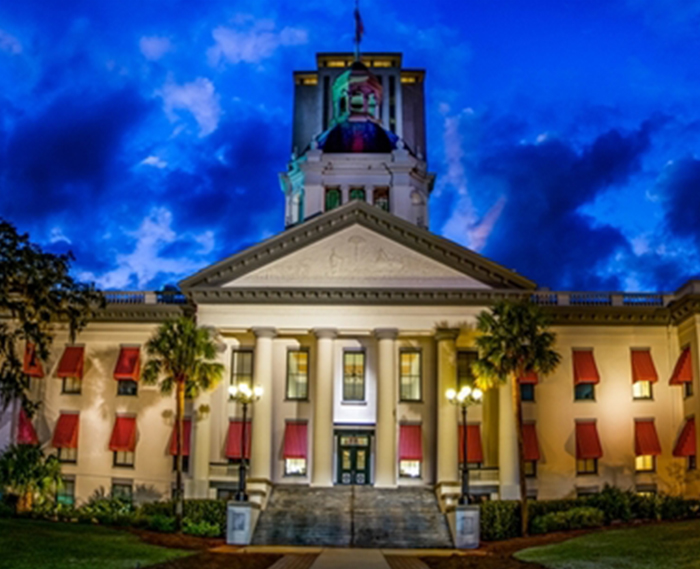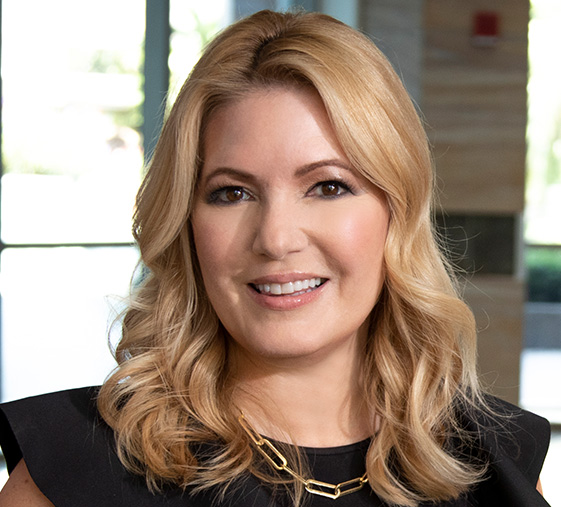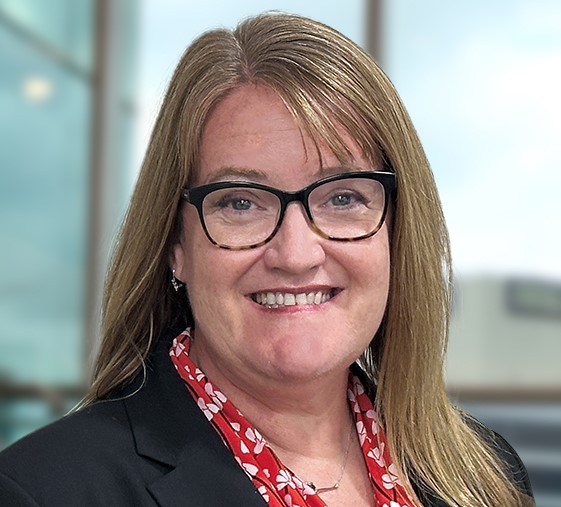
2024 Legislative Session Gets Underway!
The 2024 Legislative Session begins this week, on Tuesday, January 9, 2024, and promises to bring sweeping changes to community association operations throughout Florida. Today’s CALL Alert provides our clients with an update on the bills filed to date, and lets you know which ones we are watching closely as they pass through the committee process. Many of you may know of the Miami-Dade association that generated headlines last year as a result of the sweeping fraud that occurred inside that community. Not surprisingly, the Florida Legislature has used the Hammocks HOA case as its motivation to limit board powers, add layers of governmental oversight, limit fines, and potentially criminalize the document inspection process. While those of us who work with associations know the bad actors are thankfully the exception and not the rule, we recognize and commend the goal of this legislature to protect the residents of Florida’s more than 77,000 community associations from experiencing the same difficulties faced by the Hammocks Community. However, we also urge our public policymakers to be mindful that community association legislation must be drafted in a manner that is helpful rather than harmful. It is unfortunately not possible to completely summarize the wide-ranging proposals below, so we are urging you to read these bills in their entirety and to contact your Becker attorney for guidance. You will also see after reading some of the proposals below that your members’ immediate outreach to the sponsors of these bills is needed!
HB 1021 and SB 1178 (Condo 3.0)
Two highly anticipated condominium law bills are omnibus bills (at more than 100 pages in length), dubbed Condo 3.0 by their sponsors, and addressing a variety of topics. These two bills are substantially similar. Both require preparation of an index to be included with any response to a document inspection request; both allow an association to void a management contract under certain circumstances; both create obligations for hurricane protection; and both require condominium associations with 25 or more units to operate an association website. Both also incorporate into the Condominium Act penalties for voting crimes which were added to Chapter 720, F.S. last year.
The two bills differ in that Representative Lopez’s HB 1021 contains additional new regulations for condominium board operations, while Senator Bradley’s SB 1178 contains more clarifications of last year’s glitch bill SB 154 and the previous year’s condominium safety bill SB 4-D. You may recall SB 4-D created the Milestone Inspection and Structural Integrity Reserve programs for buildings three stories or higher, while SB 154 added some much-needed clarity to those two programs. Senator Bradley and Representative Lopez were both instrumental in the creation of SB 4-D and SB 154, which is why they call their new condominium bills Condo 3.0. We here at CALL are interested to see what final form these two bills will take this session, and we will keep you informed.
SB 278
SB 278 addresses estoppel certificates. This bill would impact all community associations and has already created a lot of buzz, with many managers and board members both objecting to the Bill. SB 278 would prevent a management company or a self-managed association from charging either a buyer or a seller for the time to prepare an estoppel certificate in advance of any real property sale. The association or its management company would still be legally obligated to prepare an estoppel certificate within the timetable provided by the existing statute and obtain legal advice where necessary. However, the association would not be able to pass any such costs along to the buyer or seller which means the association members would have to pay this cost as a common expense. SB 278 received a companion bill last Friday, HB 979 which is scheduled to be heard in the Civil Justice Subcommittee on the opening day of the legislative session. CONTACT YOUR LEGISLATORS!
HB 1203
HB 1203, sponsored by Representative Esposito, proposes impactful changes to homeowners’ association law which would inhibit association collections efforts for homeowners’ associations throughout the state. The bill would require an affirmative vote from 75% of the membership of a community before the association could lien a property to collect past due assessments valued at less than 1% of a home’s value. Those owners who live in community associations or who work with community associations know that a 75% participation rate is nearly impossible to obtain. As such, associations would be forced to carry the burden of large assessment arrearages before the Association could proceed with collections efforts. HB 1203 goes even further to undermine association finances by capping assessment increases and capping special assessments as well. The maximum increase caps can be overcome, again by an affirmative vote from 75% of the membership of a community. As such, HB 1203 would significantly undermine association finances and seems to ignore entirely the fact that association budgets have increased due to skyrocketing insurance premiums. This bill seems to overlook the fact that healthy, safe communities require adequate budgets.
HB 1203 would also allow an owner of a pickup truck or a work vehicle to park in the driveway of a home in a community regardless of any restriction requiring such vehicles to be parked in the garage. The bill also prohibits fines for trash can infractions and Christmas light infractions. The bill would also allow an owner in a townhouse or rowhouse governed by a homeowner’s association to remove load bearing walls without the interference of any architectural review committee. It also requires all homeowners’ associations to allow the installation of metal roofs.
This bill does not yet have a companion bill in the Senate, but it is expected to have a companion bill by the filing deadline of Tuesday, January 9th. CONTACT YOUR LEGISLATORS!
HB 1243
HB 1243 is sponsored by Representative Porras who passed significant changes to Chapter 720, F.S. last year. This year’s HB 1243 would require a homeowner’s association to make association records available on the association website or through a mobile application. It would increase education requirements for both association managers and board members. Additionally, it would change the budget and audit accounting requirements for associations with more than 2,500 members. It purports to create an appeals committee and appeals process for architectural review denials, and it would add new requirements for denial of an architectural change. This bill does not yet have a companion bill in the Senate, but it may have by the deadline of Tuesday, January 9th.
Insurance Bills
As has been the case for the past several years, a myriad of bills have been proposed to help alleviate the insurance crisis in the state.
- HB 0565 and SB 604 are similar, and they both apply to Citizens Property Insurance. These bills would revise eligibility for coverage by the Citizens in certain counties to include personal lines in certain residential structures. The bills would also require Citizens to annually implement a rate increase, excluding increases associated with coverage changes and surcharges.
- SB 102 and HB 1017 would create the Property Insurance Commission, provide for the election of the Commissioner of Insurance Regulation, and prohibit property insurers from claiming insolvency under specified circumstances.
- HB 625 would remove provisions relating to ineligibility of commercial lines for residential condominiums for wind-only coverage by Citizens. The bill also requires authorized inspectors to use specified inspection forms for roof inspections and increases property loss assessment coverages under condominium unit owners’ residential property policies.
- HB 889 and SB 1106 also apply to coverage by Citizens. See also related insurance bills HB 1015 and SB 1622. HB 889 and SB 1106 revise certain minimum replacement costs as risk amounts ineligible for coverage by Citizens for personal lines residential structures. The bill also provides exceptions to limits on rate increases on single policies issued by Citizens.
- HB 893 and SB 1428 also pertain to Citizens coverage. These bills revise requirements for areas that are eligible for personal residential and commercial residential and commercial nonresidential policy coverages by Citizens. These bills also would authorize Citizens to amend wind-eligible areas and to consider factors in developing new eligibility criteria and rates for policies that provide wind-only coverage.
- HB 989, HB 1143, HB 1263, SB 1098, and SB 1208 all relate to the My Safe Florida Home Program. These bills address home inspections, mitigation inspections and flood certifications. They would revise requirements for My Safe Florida Home Program mitigation grants and revise maximum amounts that department retains from funds of unclaimed property.
- HB 1213 and SB 1716 also address Citizens windstorm coverage. These bills would remove provisions relating to the windstorm risk apportionment plan agreements among property insurers. They would require Citizens to make windstorm coverage available to homeowners for any residential structures and commercial lines residential structures.
Other Related Bills We Are Watching:
Several additional bills have been filed addressing real estate seller disclosures, home hardening, home building, association fines, and hurricane protection. Note, new bills will be filed until the sessions opens, so a bill that does not have a companion bill as of this writing may have one by the start of session on Tuesday, January 9, 2024.
- SB 50 and HB 59 are identical. Both require homeowners’ associations to provide copies of the association’s Rules and Regulations and the Declaration of Covenants to all of their members by a specific date. Currently, that deadline is set for October 1, 2024, but that may change during the legislative session. Versions of these bills have been proposed every year for the past several years, but we will let you know if these bills move forward this year.
- HB 293 and SB 600 both concern Hurricane Protections for homeowners’ associations, and they contain a mandate from the Legislature, for all boards of homeowners’ associations to adopt hurricane protection specifications. The bills also prohibit any board or committee of an association from denying application for installation of a metal roof.
- HB 329 and SB 860 are identical. They would create a Homeowners’ Assistance Fund within the Department of Commerce to provide expenses for those who qualify for assistance. The bills also provide deadlines for assistance requests.
- HB 429 and SB 756 are identical and would regulate Timeshare Properties. These bills would broaden powers of certain boards with respect to timeshare plans and provide rights and remedies to managers and managing entities as operators of certain timeshare establishments.
- HB 431 and SB 826 would limit fines levied by homeowners’ associations to $500 total in the aggregate unless the governing documents provide for higher amounts.
- HB 481 and SB 612 are identical. In proceedings regarding the interpretation of the Florida Building Code or the Florida Accessibility Code for Building Construction, these bills would allow the prevailing party to collect prevailing party attorney fees. The bills also prohibit HVAC manufacturer’s warranties from being conditioned upon product registration.
- HB 595 and SB 942 are identical. They would create Section 720.309, F.S. requiring the DBPR to implement a searchable database of homeowners association information including the most recent budget and any reserve studies.
- HB 655 and SB 802 are identical. They require the Office of Insurance Regulation (OIR) to establish a Condominium Windstorm Pilot Program. The bills also require a majority vote of the total voting interests of a condominium association to participate in the program. The bills provide requirements for participation in the program.
- HB 173 (also known as the Tithing Bill) would amend Section 720.303, F.S. to require charitable contributions or donations of fifteen percent (15%) of the budget by every Florida homeowner’s association. CALL YOUR LEGISLATORS to discuss this forced donation bill.
- SB 280 pertains to vacation rentals. It would obligate advertising platforms to collect and remit certain taxes for vacation rental transactions.
- SB 426 would create the Condominium Fraud Investigation Pilot Program within the Department of Legal Affairs in the Office of the Attorney General and then authorizes the department to create the Office of the Homeowners’ Association Ombudsman within the DBPR. This bill is designed to give more “teeth” to enforcement actions. It is interesting to note that the Office of the Condominium Ombudsman has been vacant for almost a year.
- HB 613 and SB 1140 pertain to mobile home park tenancies and give the DBPR additional oversight responsibilities.
- HB 1029 would create a My Safe Florida Condo pilot program. SB 1366 is the companion bill. The pilot program would be established within the Department of Financial Services and the bill provides requirements for the program.
- HB 627 and SB 1234 address disclosure requirements for prospective purchasers. These bills require prospective purchasers to be provided with the association’s governing documents, and other pertinent association records in addition to the disclosure summary, before executing a contract. The bills also authorize cancellation of a contract for sale within 3 days of receipt of the association documents.
- SB 1068 and HB 1229 both address a marketable record title act issue pertaining to an affordable housing project constructed on a lake.
- HB 1257 would move the Department of Condominium and Timeshares from the DBPR to the Division of Law Enforcement. SB 1378 is its companion bill. Again, this is seen as a move towards more “law and order” in the community association context.
- HB 1249 and SB 1706 create new definitions and a new statute specifically addressing condominiums created and existing within a portion of multi parcel building.
Conclusion
As you can see from the foregoing, this session is shaping up to be one of the busiest and most impactful in decades. Some of the foregoing bills would make life in community associations more costly and less safe, while others will provide welcome relief. As always, we will continue to track all of these bills as they move through the legislative process and will endeavor to keep you informed throughout the process. The best way to impact legislation is for YOUR COMMUNITY to play a role via outreach to the legislators hearing and voting on these proposals.
If you have questions about community association legislation, please reach out to any of our CALL team members.

Donna DiMaggio Berger |

Kenneth S. Director |

Steven H. Mezer |

bswift@beckerlawyers.com |
